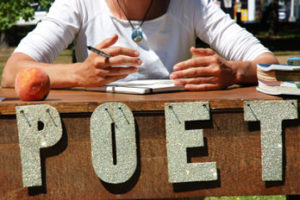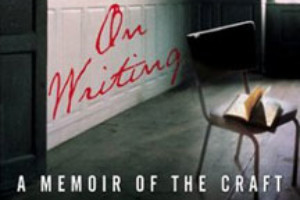
Top Secret Fiction Writing Prompts
“Ssh, don’t tell anyone. Put it in the vault!” Most of us have had those very words whispered into our ears. In fact, most of us have probably whispered those words into someone else’s ear. They say everyone has a secret. I don’t know if that’s true, but I do know that secrets sure pique…Read More

From 101 Creative Writing Exercises: Your Gang
Today’s writing exercise comes from my book, 101 Creative Writing Exercises, which takes you on an adventure through the world of writing. You’ll explore different forms and genres while learning practical writing techniques. You’ll also get plenty of writing experience and ideas for publishable projects. Each chapter focuses on a different form or writing concept: free…Read More
What Makes Iconic Characters Unforgettable?
This post contains affiliate links. Luke Skywalker was the obvious hero of Star Wars: A New Hope, so why does it seem like Han, Leia, and Darth Vader got all the attention? When I think about the characters from Star Wars, Luke is often the last one who comes to mind. It’s not that he’s…Read More

How to Improve Your Poetry Skills
Poetry writing requires no license, no education, and no experience. All you need to get started is a pen and some paper. In fact, many writers discovered their calling because they were compelled to write poetry at a young age. But there’s a big difference between writing poetry and writing good poetry. Opinions about the…Read More

Grammar Guidelines Versus Grammar Rules
In grammar, there are rules and then there are guidelines. Rules may sometimes be broken, but usually breaking the rules of grammar leads to prose that sounds awkward and is indisputably incorrect. But breaching the guidelines often leads to prose that sounds more natural. An example of a grammar rule would be the use of…Read More

How to Cultivate Writing Inspiration
Do you ever sit down to write only to discover hours later that you’ve done nothing but stare off into space with a blank look on your face, occasionally breaking from your stupor to notice that you haven’t written a single word? I bet there have also been times when you were bursting with creativity…Read More

Daily Writing Leads to Better Writing
Today’s post is an excerpt from 10 Core Practices for Better Writing. This is from “Chapter Two: Writing.” Enjoy! “I only write when I am inspired. Fortunately I am inspired at 9 o’clock every morning.” – William Faulkner Ideally, you would write every day. Writers who come to the craft out of passion rarely have a…Read More

Writing Tips: Eliminate Redundancies in Your Writing
Writers are human, and sometimes we make mistakes. You’re probably aware of the most common mistakes in writing: comma splices, run-on sentences, mixing up homophones, and a variety of other broken grammar, spelling, and punctuation rules. In my coaching work, I’ve noticed another common mistake: redundancy. Sometimes we use repetition effectively, but most of the…Read More

Writing Resources: Stephen King On Writing
Today I’m bringing back a post that’s been sitting in the archives for a while. Stephen King’s On Writing is one of the most important books ever written on the craft of writing, one of the few texts that all writers should experience, regardless of your preferred form or genre. This post has been updated…Read More

Creative Writing Prompts for Animal Lovers
Today’s post includes a selection of prompts from 1200 Creative Writing Prompts. Enjoy! Animals have played a significant role in literature throughout history. They appear in poems and stories, and plenty of nonfiction works have been written about animals and humans’ experiences with animals. From E.B. White’s Charlotte’s Web to Jane Goodall’s (aff links) books on…Read More



